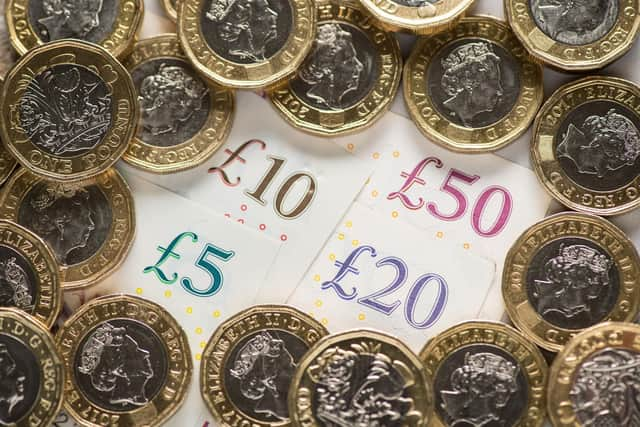UK inflation falls slightly but remains close to 40-year high
The Office for National Statistics (ONS) is set to show the rate of Consumer Prices Index (CPI) inflation falling to 10.5 per cent last month from 10.7 per cent in November, according to most economists.
It is thought that sharp drops in the prices at petrol pumps is behind the expected decline, which would mark the second month in a row that the rate of inflation has dropped back.
Advertisement
Hide AdAdvertisement
Hide AdCPI has eased since the eye-watering 41-year high of 11.1 per cent seen in October, when soaring energy bills pushed up the cost of living.


It comes after Britons have been hit by steadily rising inflation throughout 2022 as the cost of living crisis peaked, pushed higher by rocketing energy bills, while essentials have also jumped higher across the board.
Food and drink prices hit 16.4% in November – the highest for 45 years – adding to the strain felt by families across the UK.
Chancellor of the Exchequer Jeremy Hunt said: “High inflation is a nightmare for family budgets, destroys business investment and leads to strike action, so however tough, we need to stick to our plan to bring it down.
“While any fall in inflation is welcome, we have a plan to go further and halve inflation this year, reduce debt and grow the economy – but it is vital that we take the difficult decisions needed and see the plan through.
“To help families in the meantime, we are providing an average of £3,500 of support for every household over this year and next.”
Shadow chancellor Rachel Reeves said “13 years of wasted opportunities under the Tories have left our economy weak and families worse off” as the latest figures showed the rate of consumer prices index inflation was at 10.5% in December.
That was a fall from 10.7% in November but Ms Reeves pointed out it was still five times the 2% target.
Advertisement
Hide AdAdvertisement
Hide Ad“We do not have to continue on this path of managed decline,” she said.
“Labour will stabilise our economy and get it growing.”
Investec economist Philip Shaw said: “For December, we expect the biggest influence to be petrol prices, which declined by close to 5% on the month, against a flat outturn 12 months earlier.
“In addition clothing and footwear prices may also have fallen back as retailers returned to seasonal discounting.
He added: “An important factor will be the behaviour of food prices… We are building in some moderation in annual food price inflation this time, partly on the recovery in sterling but also due to the continuing weakness in wholesale food prices over the past six months, particularly grain costs.”
But experts believe the marked slowdown in the rate of inflation is unlikely to stop the Bank of England from hiking interest rates once more at its February meeting as it looks to rein in wider cost pressures in the economy, with workers still demanding higher wages.